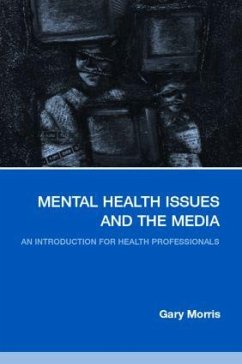
The Handbook of Community Mental Health Nursing
Versandkostenfrei!
Versandfertig in 1-2 Wochen
69,99 €
inkl. MwSt.
Weitere Ausgaben:

PAYBACK Punkte
35 °P sammeln!
This handbook brings together authoritative contributions from leading mental health researchers, educators and practitioners to provide a comprehensive text for community mental health nurses in training and practice. In thirty-three chapters it covers a wide range of topics, from the history of the profession to current approaches to specific client groups, organised around three linked themes: professional context practice issues education and research. Each chapter includes a summary of key points and suggestions for further reading, and also includes useful appendices listing key professi...
This handbook brings together authoritative contributions from leading mental health researchers, educators and practitioners to provide a comprehensive text for community mental health nurses in training and practice. In thirty-three chapters it covers a wide range of topics, from the history of the profession to current approaches to specific client groups, organised around three linked themes: professional context practice issues education and research. Each chapter includes a summary of key points and suggestions for further reading, and also includes useful appendices listing key professional and voluntary organisations, journals, Internet and mailing lists. The handbook reflects the diversity and scope of the role of the CMHN and recognizes the multidisciplinary and service user context in which nurses work. It is an essential text for CMHNs and mental health nurse educators, and offers a useful source of reference for allied professionals.














